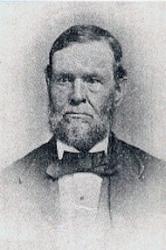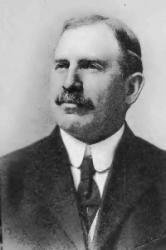1821 - 1880 Person Name: Jeannette Threlfall (1821-1880) Topics: Jesus Christ the Lord His Triumphal Entry; Adoration; Children's Hymns; Christ Entry Into Jerusalem; Christ Praise to Christ; Christ Triumphal Entry; Palm Sunday Author of "Hosanna, loud hosanna" in The Hymnal Jeannette Threlfall’s (b. Blackburn, Lancashire, England, 1821; d. Westminster, London, 1880) life was extremely difficult: she was orphaned at an early age, and two serious accidents caused her to be an invalid for life. But she bore her misfortune with grace and fortitude and maintained a ministry to many people who came in contact with her. Threlfall wrote devotional verse, which was published anonymously in various periodicals and later collected in Woodsorrel, or Leaves from a Retired Home (1856) and Sunshine and Shadow (1873), which included "Hosanna, Loud Hosanna."
Bert Polman
================
Threlfall, Jeannette. This sweet singer of hymns and other sacred poems, was born in the town of Blackburn, Lancashire, on 24th March, 1821. She was the daughter of Henry Threlfall, wine merchant, and Catherine Eccles, the latter a somewhat noticeable local family, who disapproved of the marriage. She was early left an orphan, and became the "beloved inmate" (as a memorial-card bears) of the households successively of her uncle and aunt Bannister and Mary Jane Eccles, at Park Place, Blackburn, and Golden Hill, Leyland; and later of their daughter, the late Sarah Alice Aston, and her husband, of Dean's Yard, Westminster. Latterly she met with a sad accident that lamed and mutilated her for life, and a second rendered her a helpless invalid. She bore her long slow sufferings brightly, and to the end retained a gentle, loving, sympathetic heart, and always a pleasant word and smile, forgetful of herself. Throughout she was a great reader, and at "idle moments" threw off with ease her sacred poems and hymns. These were sent anonymously to various periodicals. They were first collected and issued in a small volume, entitled Woodsorrel; or, Leaves from a Retired Home. By J. T., London: J. Nisbet, 1856. There are thirty-five poems in all. They do not appear to have won any notice except among friends. Years later she selected 15 pieces from Woodsorrel and added 55 others, and published them as Sunshine and Shadow. Poems by Jeannette Threlfall. With Introduction by the Lord Bishop of Lincoln [Wordsworth]. London: (Hunt), 1873. A 3rd edition (1880) is entitled New Edition. With In Memoriam from the Sermons of the Dean of Westminster and Canon Farrar.
Bp. Wordsworth praises her poems, and observes:—
"It is an occasion for great thankfulness to be able to point to poems, such as many of those in the present volume, in which considerable mental powers and graces of composition are blended with pure religious feeling, and hallowed by sound doctrine and fervent devotion."
The sacred poems are not very well wrought, nor at all noticeable in thought or sentiment. But all through one feels that a sweet spirit utters itself. She died on 30th November, 1880, and was interred at Highgate Cemetery, 4th Dec, 1880. [Rev. A. B. Grosart, D.D., LL.D.]
Of Miss Threlfall's hymns those in common use include:—
1. Hosanna! loud hosanna, The little children sang. Palm Sunday.
2. I think of Thee, O Saviour. Good Friday.
3. Lo, to us a child is born. Christmas.
4. Thou bidd'st us seek Thee early. Early Piety.
5. We praise Thee in the morning. Morning.
6. When from Egypt's house of bondage. Children as Pilgrims.
These hymns are all taken from Miss Threlfall's Sunshine and Shadow, 1873. No. 2 was written during a dangerous illness, at her dictation, by a friend. No. 1 is the most widely used of her compositions.
-- Excerpts from John Julian, Dictionary of Hymnology (1907)
===============
Threlfall, Jennette, p. 1171, ii. Another piece, included in the Sunday School Hymnary, 1905, is "I'd choose to be a daisy" (Lambs of Jesus). In her Woodsorrel, 1857, p. 97, entitled "The Child's Choice." Her "I think of Thee, O Saviour," is also from the same work.
--John Julian, Dictionary of Hymnology, New Supplement (1907)
Jennette Threlfall


